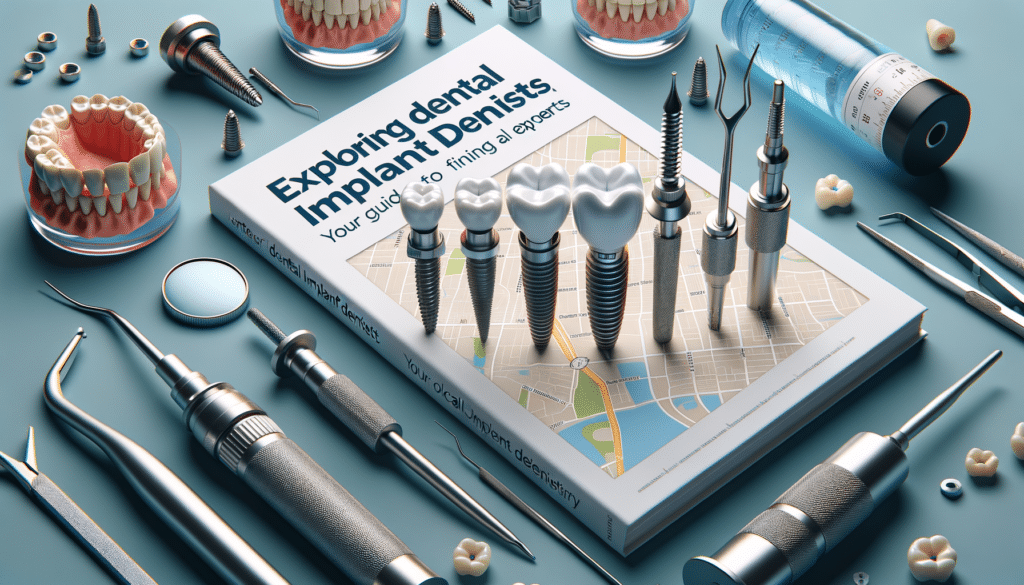Understanding Dental Implants: A Modern Solution for Tooth Replacement
Dental implants have revolutionized the field of dentistry, offering a robust and long-lasting solution for tooth replacement. Unlike traditional dentures or bridges, dental implants are designed to mimic the natural structure of teeth, providing both aesthetic and functional benefits. The process involves embedding a titanium post into the jawbone, which acts as a root, and then attaching a crown that looks and functions like a natural tooth.
One of the key advantages of dental implants is their durability. With proper care, implants can last a lifetime, making them a cost-effective option in the long run. They also help in preserving jawbone density, which can deteriorate over time with missing teeth. This preservation is crucial as it maintains facial structure and prevents the sunken look often associated with tooth loss.
For those considering dental implants, it’s essential to understand the procedure, which typically involves several stages, including consultation, surgery, and recovery. Each step is crucial for the success of the implant, emphasizing the importance of choosing a qualified dental implant dentist.
Finding the Right Dental Implant Dentist: Key Considerations
When searching for a dental implant dentist nearby, several factors should guide your decision to ensure you receive top-notch care. First and foremost, look for a dentist with specialized training in implantology. This specialization ensures that the dentist is well-versed in the latest techniques and technologies in dental implants.
Experience is another critical factor. A dentist with a proven track record in successful implant procedures will likely provide better outcomes. Don’t hesitate to ask for before-and-after photos of previous patients or testimonials to gauge their expertise.
Additionally, consider the dentist’s approach to patient care. A good dentist will take the time to explain the procedure, answer questions, and address any concerns you may have. They should also provide a comprehensive treatment plan tailored to your specific needs.
Cost and Insurance: Navigating the Financial Aspects
The cost of dental implants can vary widely depending on several factors, including the number of implants needed, the complexity of the procedure, and the dentist’s experience. On average, a single implant can range from $3,000 to $5,000, but prices can be higher in urban areas or for more complex cases.
Insurance coverage for dental implants can be limited since many plans consider implants as cosmetic procedures. However, some insurance plans may cover a portion of the cost if the implants are deemed medically necessary. It’s essential to consult with your insurance provider to understand your coverage and explore financing options if needed.
Many dental practices offer payment plans or financing options to make implants more accessible. Discuss these options with your dentist to find a solution that fits your budget.
What to Expect During the Dental Implant Procedure
The dental implant procedure is typically performed in several stages, beginning with a thorough consultation and examination. During this stage, the dentist will assess your oral health, take X-rays, and develop a personalized treatment plan.
The next step is the surgical placement of the implant. This procedure is usually done under local anesthesia, and the titanium post is inserted into the jawbone. After the surgery, a healing period of several months is necessary to allow the bone to integrate with the implant, a process known as osseointegration.
Once the implant has successfully integrated, a small connector called an abutment is placed on top of the implant, followed by the attachment of the custom-made crown. This final step restores the appearance and function of the missing tooth.
Maintaining Your Dental Implants: Tips for Longevity
Proper care and maintenance are vital for the longevity of dental implants. Just like natural teeth, implants require regular brushing and flossing to prevent plaque buildup and gum disease. It’s also essential to maintain regular dental check-ups to monitor the health of your implants and surrounding tissues.
Avoiding hard foods and using a mouthguard if you grind your teeth can also help protect your implants. Additionally, quitting smoking can significantly improve the success rate of your implants, as smoking can interfere with the healing process and increase the risk of implant failure.
By following these care tips and working closely with your dentist, you can ensure that your dental implants remain a durable and effective solution for tooth replacement.




